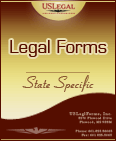Easement for Driveway
 This is an Easement for a Driveway, to be used across the United States. This form allows for a non-exclusive easement for the purpose of entry to a certain property, by and through the property's driveway.
This is an Easement for a Driveway, to be used across the United States. This form allows for a non-exclusive easement for the purpose of entry to a certain property, by and through the property's driveway.An easement gives one party the right to go onto another party's property. That property may be owned by a private person, a business entity, or a group of owners. Utilities often get easements that allow them to run pipes or phone lines beneath private property. Easements may be obtained for access to another property, called "access and egress", use of spring water, entry to make repairs on a fence or slide area, drive cattle across and other uses. The easement is a real property interest, but separate from the legal title of the owner of the underlying land.
In the case of a driveway easement, it allows the person who is the beneficiary of the easement to cross the "servient" property. The land which receives the benefit of the easement is called the "dominant" property or estate. As an example, a driveway easement may be created by recording a deed that states that one neighbor owns the driveway to the halfway point, but has an easement or right of way to use the remainder; however, the adjoining home owns the other half of the driveway, with a right-of-way with respect to the portion the neighbor owns. This is one way to use a driveway easement.
An easement may be claimed by prescription for the use of the driveway. This requires proof that your neighbor willingly abandoned his use of the driveway during the adverse period when you and your predecessor in title enjoyed the exclusive use of the driveway.
Easements should describe the extent of the use, as well as the easement location and boundaries. For example, if an easement is created for the driveway for one house, the owner of the easement cannot turn his house into a hotel with many cars travelling over the easement if the easement was intended for use by a single family. (more...)

Download: Easement for Driveway
Available from: USLegalForms.com
SKU: US-EAS-31
NOTICE: The information and links contained on this web page are intended only to be merely informative and are NOT intended to provide legal advice to any person/entity. Consult with and seek the advice of a qualified lawyer. E.&O.E. Click here for important legal disclaimer.

